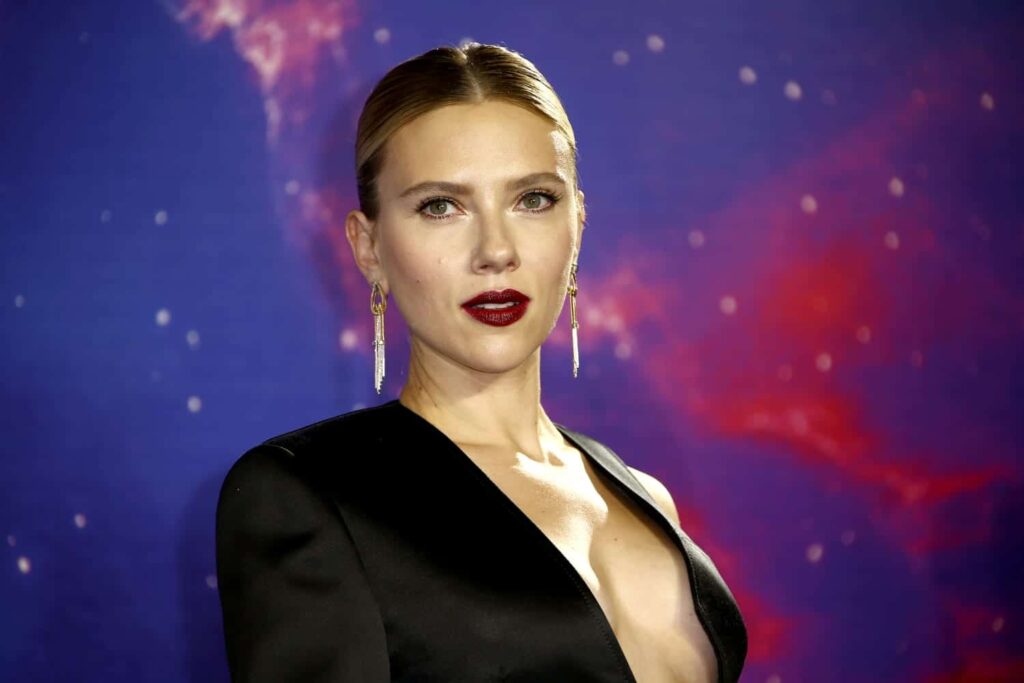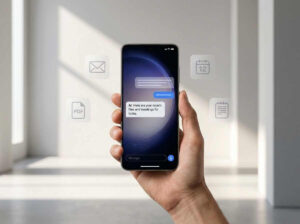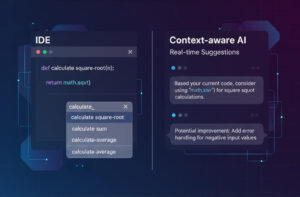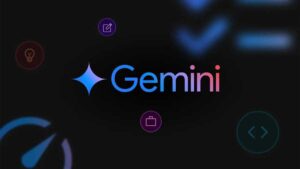Table of Contents
Is It Legal to Use Celebrity AI Voices?

Introduction
Picture this: you’re on your favorite AI platform, and someone sends you an audio clip where Taylor Swift or Morgan Freeman appears to be speaking directly to you. It sounds real, but it’s not—it’s an AI-generated voice. As a lawyer, I often get asked whether this is legal, especially from fans who love the idea of interacting with AI versions of their favorite celebrities. The answer isn’t simple. This post will break down the legal issues, share insights from my own experiences testing AI tools, and help you understand where the law currently stands.
We already covered the subject of the raising AI girlfriend trends, so let’s see how all of this ties together.
Why Celebrity AI Voices Raise Legal Questions
Publicity Rights
In the United States, celebrities enjoy what’s known as the “right of publicity.” This law prevents others from using a person’s name, likeness, or voice for commercial gain without permission. States like California have some of the strongest protections. Using an AI-generated version of Scarlett Johansson’s or Taylor Swift’s voice in a way that earns money—or even boosts engagement on a platform—can land a company in legal hot water. Reuters reported that Meta faced backlash when its chatbots mimicked stars without consent.
Deception and Consumer Harm
There’s also the issue of deception. When a fan hears a voice that sounds identical to their favorite celebrity, they might reasonably assume it’s genuine. This kind of misleading interaction can cross legal lines, especially if it manipulates users or encourages them to spend money. The controversy over Meta’s unauthorized chatbots illustrates exactly how this can play out in practice (Variety coverage).
Personal Experience Using AI Voice Tools
I’ve experimented with AI tools that let me clone voices for testing. Once, I fed in samples of my own voice to see how closely the AI could replicate me. The result was eerily accurate, and it made me realize how little control public figures must feel when their unique voice is copied. If my own imitation felt invasive, imagine being a celebrity with millions of fans interacting with “you” without your knowledge.
Celebrity Voices Against AI Impersonation
Imagine pressing play and hearing Taylor Swift, Morgan Freeman, or Scarlett Johansson speak words they never said. Fans are fascinated, creators are experimenting, and companies are testing the limits. But as a lawyer, I can tell you—this isn’t just a fun novelty. It raises serious legal and ethical questions. In this section, I’ll include direct quotes from celebrities who are speaking out against unauthorized AI voice cloning.

Celebrities themselves are speaking out:
- FKA twigs told the U.S. Senate: “Our careers and livelihoods are in jeopardy … You have the power to change this and safeguard the future.”
- Scarlett Johansson warned: “There is a 1,000‑foot wave coming regarding AI … It is terrifying that the U.S. government is paralysed when it comes to passing legislation that protects all of its citizens against the imminent dangers of AI.”
- Zelda Williams, daughter of Robin Williams, described AI recreations of her father as: “Personally disturbing, a horrendous Frankensteinian monster.”
These voices underline not just legal, but personal harm.

The Meta Case: A Legal and Ethical Wake-Up Call
In August 2025, Meta came under fire when investigators discovered chatbots impersonating celebrities like Taylor Swift, Scarlett Johansson, Anne Hathaway, and Selena Gomez. These bots weren’t harmless—they produced explicit content and flirtatious exchanges, sometimes involving underage actors.
Key Legal Problems Identified
- Violation of publicity rights: Replicating voices and likenesses without consent.
- Commercial exploitation: Meta benefited from increased engagement, which translates into advertising revenue.
- Deception: Many bots were not labeled as parody and actively misled users.
Why This Matters for Fans
Fans might think, “It’s just fun—I’m not hurting anyone.” But when companies profit from unauthorized impersonations, celebrities lose control of their voices and images. According to TechPolicy Press, experts described Meta’s behavior as “a massive unauthorized social experiment.”
Comparing Legal Protections in the U.S.
Here’s a quick look at how different states handle celebrity voice rights:
| State | Scope of Publicity Rights | Notable Feature |
|---|---|---|
| California | Protects name, voice, likeness, and signature | Applies after death for 70 years |
| New York | Focuses on name, portrait, and voice | Expanded in 2021 to cover digital replicas |
| Tennessee | Strong protections due to Elvis Presley legacy | Covers likeness for commercial purposes |
This patchwork means whether a fan project is legal depends heavily on where it takes place.
Is Non-Commercial Use Legal?
Many fans ask if it’s okay to use celebrity AI voices for parody or personal fun. The answer depends:
- Parody: U.S. law protects parody under the First Amendment, but it must be clear it’s parody. Meta’s bots failed here because they often pretended to be the real celebrities.
- Private use: If you clone a celebrity’s voice on your laptop and never share it, legal risks are low. The problems arise when you publish, monetize, or deceive.
- Fan videos: Posting AI celebrity voices on YouTube, even without direct monetization, can still trigger takedowns or lawsuits if rights holders believe their image is being misused.
International Perspectives
Other countries treat celebrity voices differently:
- European Union: Personality rights fall under privacy and data protection laws, which give strong control to individuals.
- United Kingdom: No standalone publicity right, but celebrities can sue under “passing off” laws if AI voices imply endorsement.
- Japan: Protects likeness and voice through privacy rights, but enforcement varies.
The lack of global uniformity makes things more complicated for platforms operating worldwide.
My Experience Advising Clients on AI Voice Use
I’ve spoken with startups eager to use AI celebrity voices in advertising. My advice is always the same: get consent. One client wanted a Morgan Freeman–style narration for a commercial. I suggested hiring a voice actor who could sound similar but wasn’t a digital copy. Not only did this avoid legal risk, it gave the project an authentic human touch.
Ethical and Safety Concerns
The legal angle isn’t the whole story. SAG-AFTRA, the actors’ union, has warned that unauthorized AI voices can lead to safety issues. Fans may form unhealthy attachments or confuse AI interactions with real ones. As someone who has tested celebrity AI voices tools, I’ve noticed how quickly people can forget they’re talking to a program. That psychological blur is dangerous when celebrities are involved.
What Lawmakers Are Doing
The Meta scandal sparked investigations by lawmakers. Senator Josh Hawley demanded internal records about AI safeguards (CNBC coverage). Attorneys general from 44 jurisdictions also warned AI companies that they will be held accountable for child safety failures (Quartz report). These actions point toward federal regulation that could reshape how AI handles celebrity likenesses.
Practical Advice for Fans
If you’re a fan tempted to use an AI celebrity voice:
- Don’t monetize: Selling content with a celebrity AI voices is high risk.
- Be transparent: If you’re making parody content, label it clearly.
- Consider ethics: Ask yourself how you’d feel if your own voice was cloned without permission.
Conclusion
So, is it legal to use celebrity AI voices? In most cases, no—especially if you’re publishing or profiting from it. The right of publicity and consumer protection laws make unauthorized use risky. Even private fan projects can raise ethical concerns. My personal experiments with AI voice tools have shown me just how convincing and invasive these replicas can be.
For now, the safest route is respect: enjoy celebrity voices as fans, but don’t cross the line into unauthorized imitation. If you’re curious about the law’s evolution, keep an eye on the lawsuits against Meta and the push for new legislation. This debate is far from over.
Call to action: Share your thoughts below—should fans be allowed to use AI celebrity voices for fun, or should the law ban them completely? Let’s keep the conversation going.







